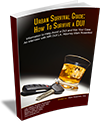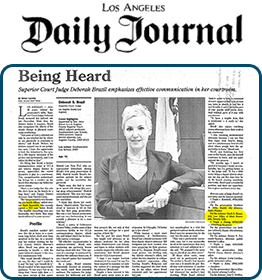Rectification: Sometimes, people will refuse to submit their chemical test, the breath test or a blood test, thinking that there won’t be any evidence that can be used against them. However, the law enforcement officers are trained to conduct a complete and thorough investigation that begins with the officer observing or watching the person drive. So, the lack of a chemical test can play a big factor, but it doesn’t mean there’s no evidence. The officers can watch how a car drives, how the car responds to emergency lights, how a car responds to a siren, how a car pulls to the side of the road.
The officers are also trained to continue their investigation when they walk up to the car and start talking to the driver. They will look for clues like the odor of alcohol, and they’ll also look to see the condition of the person’s clothing as well as their eyes. They will build a case and develop evidence with what they’re able to see, hear and smell and then, they will also ask a person to get out of the car. They will use how the person gets out of the car as evidence of whether the person is or is not impaired and they will ask a series of questions to determine whether or not the person understands and answers the questions like a sober person or like somebody who may be impaired for the purposes of driving.
Of course, there are field sobriety tests, both standardized and non-standardized field sobriety tests, which the officers will often have somebody do. Field sobriety tests will assist the officer in preparing a case and compiling evidence to prove that someone is or is not impaired for the purposes of driving. So, the lack of a chemical test, although very important for a couple of different reasons, does not mean that the prosecution will not have any evidence. One of the biggest arguments that a prosecutor can make is that somebody refused to submit to a breath or a blood test and the reason that they refused is because they knew that they were impaired for the purposes of driving.
This is a consciousness of guilt argument and there’s actually a jury instruction of law, meaning a judge will instruct the jury that they can take into consideration the fact that somebody refused to complete a test. It gets more complicated if it’s not a straight refusal but perhaps an inability to complete a test instead, which may also be used against somebody. So, not having a breath or a blood test is less evidence for the prosecution, but it does not mean they have no evidence.






 Personal Attention
Personal Attention Every criminal case is unique and no attorney can guarantee the outcome of a case. The information on this site is legal advertising and for general information only. Using this site, requesting books, information, consultations or communicating with Attorney Rosenfeld through its site does not form an attorney/client relationship.
Every criminal case is unique and no attorney can guarantee the outcome of a case. The information on this site is legal advertising and for general information only. Using this site, requesting books, information, consultations or communicating with Attorney Rosenfeld through its site does not form an attorney/client relationship.








